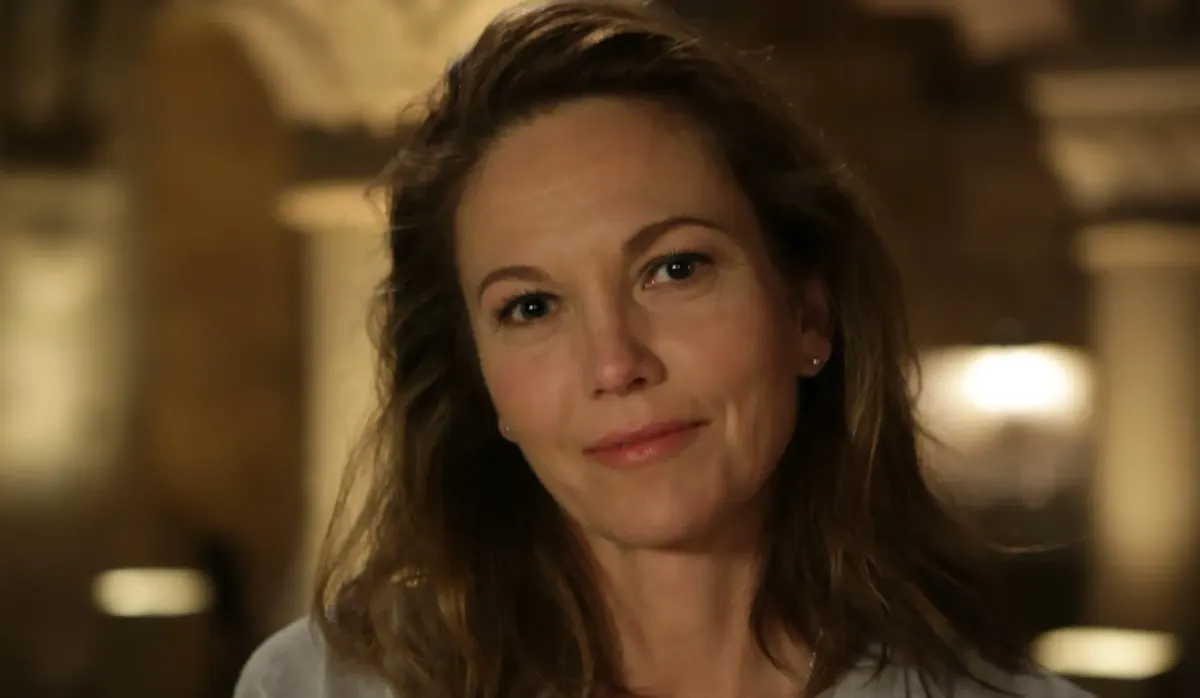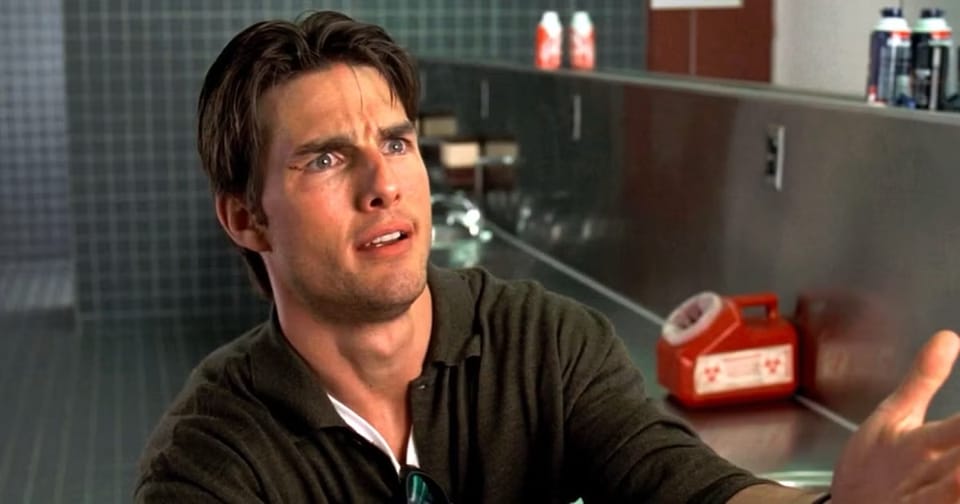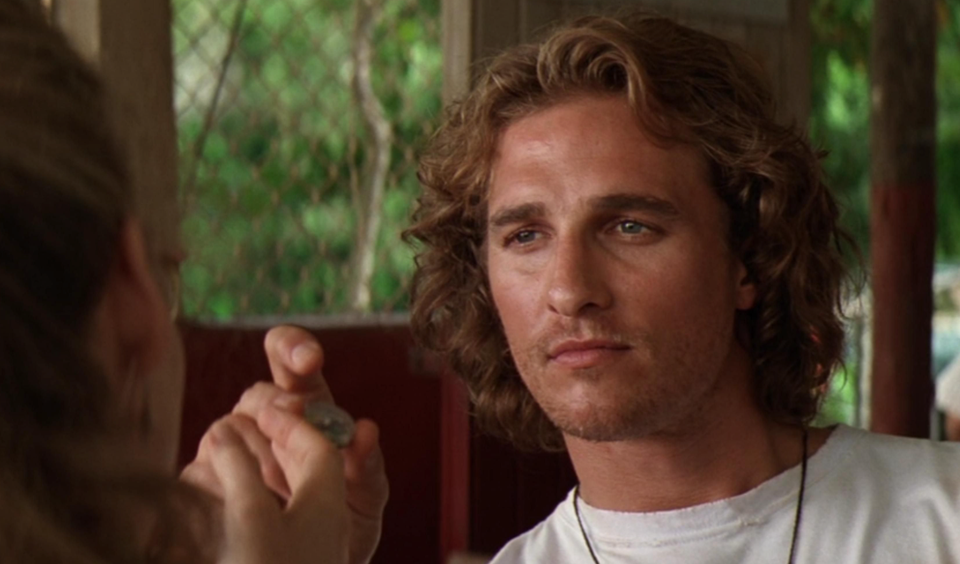When it is time to attach actors.
Movie-making is star-driven.

The Story and Plot Weekly Email is published every Tuesday morning. Don't miss another one.
I have three projects that are currently trying to put a cast together. Only one I would say is actually “casting,” and the other two are what you would call “packaging.”
The distinction is that only one is making actual offers, and the other two are asking, “Will you attach yourself to this project so we can set it up and we can all go make a movie?”
Each is in a different stage, and each has different challenges.
Like every other phase of a screenplay’s life, it takes time, and there is a lot of rejection, but it is an essential part of the process that must be navigated.
Movie-making is star-driven.
This is less so now than in the past, but still mostly true.
- Actors give a project legitimacy early on in development.
- Actors attract other actors to the project.
- Actors make the package more valuable to buyers.
- Actors give a project a certain financial floor in foreign sales.
- Actors attract studios and other domestic distributors.
- Actors give a project legitimacy to the audience.
This is, of course, not absolute.
Some genres are more dependent on actors than others; directors can be as valuable as stars, and the same with franchises.
In any case… unless you are financing out of your own pocket…
You are almost certainly going to need name actors.
Now, the good news is that as the screenwriter, it’s not your job to really worry about it.
It is usually above your pay grade other than to write roles that actors want to play.
That is hard enough! If you do that, you are doing an exceptional job and you have earned your paycheck. Congrats!
But for the last decade or so, I have also been leaning into producing and trying to aggressively learn as much as I can there.
The last 30 years, I have watched more and more of the development process get pushed down the ladder, and while it is disheartening, it is the reality.
These days, I usually have some kind of producing credit like “co-producer” or “executive producer” in my contract. These are meaningless titles.
They are negotiated, not earned, and you have to be very intentional about being a part of the process, learning, asking questions, and keeping up with the decision-making.
This is important because there will be times when pushing your project forward is going to fall on you.
While I consider myself a genuine expert in screenwriting, I am one step out of my element when talking about producing and packaging projects.
That said, this is a lot of what I have learned over the years, and especially with three projects I am working on recently.
Someone is going to lead the packaging.
It will be one of two people. It is going to be your reps or the producers, usually both.
If you don’t have reps, it will be the producers. If you are operating as the de facto producer, then just you.
As a whole, packaging agencies will not be as helpful as you would think or hope.
Often, they can even feel like adversaries. It all depends on how legitimate they think the person they are talking to is.
What stage is the project in?
Some stages are better (and more lucrative) than others, but each stage has its own frustration.
A project with financing and distribution.
This is a studio film, streamer, or network. This is the most “traditional” way of doing business. The financier and the distributor are the same; they now control the property and make offers to actors they are willing to make the movie with.
Agents respond quickly and negotiate those offers.
But these companies are buying fewer and fewer projects without attachments already involved.
Financing but without distribution.
This is where my project DADDY’S GIRL is. It has financing, and the company that controls it is making real offers to actors that they are willing to make the movie with.
But the industry is more risk-averse than ever, and that list of acceptable actors is smaller than ever.
So that puts the power back to those few actors.
Or more accurately, their reps—and those reps have a stack of offers.
What puts your project’s offer to the top of that pile?
Is it the screenplay? Nope. No one has read the screenplay yet.
The first two things the agent or manager looks at is:
- How much is the offer?
- Who is directing?
They will have to get excited about at least ONE of those to read your screenplay next.
DADDY’S GIRL has a very good, very experienced, talented director. But he is not enough to get the project to the top of that pile.
The company is making offers more in line with what they want to pay rather than what will get the actor’s attention.
Those offers will not get the project to the top of that pile.
So just a matter of patience, right?
Unfortunately, no. There are two possible risks if they do not get an actor quickly:
- The financing company loses confidence in the project and turn their attention to other shiny things.
- The director moves on to another project.
I am not the current writer on DADDY'S GIRL. I have no role here. I can only sit back and hope for the best.
A commercial project to be packaged.
This is where MOST WANTED is. This is an original, mid-range action-comedy, the kind of film the studios used to make all the time.
You could take the project to a buyer (a studio) all by itself and turn it quickly into a project “with financing and distribution.”
But you are taking a risk, both in terms of a pass or just a low-ball offer even if they do like it.
The thinking these days is to instead put a package together of director and actors so it is difficult for a buyer to say no.
As for MOST WANTED, it’s a little unique. The goal is to finance outside of the studio system and be in profit before a domestic sale.
Why? Because that is more lucrative for all involved, and the producer knows how to do it.
This strategy has no choice but to put a package together beforehand.
You have the same problem when you reach out to talent: how do you get your project to the top of the reps’ pile?
If the producer has a great relationship with the agent or manager, that helps, but it will usually come down to:
- Who is directing?
Some actors are "offer only," but if their reps are in this conversation, they’re not concerned about the lack of financial offer because the basic range is understood, and they’re free to negotiate their own deal.
But who is directing MOST WANTED?
Right now, no one.
The lack of a director is usually enough to give an actor a wait-and-see attitude, but they could also want a say in who the director is.
MOST WANTED recently lost its director, but we also gained an A-list producer. I just turned in a new draft based on that producer's notes.
Ruben Fleischer was once attached, as was David Gordon Green. The feeling is that the project is attractive to directors, and we will find another one.
So the plan is to let the bigger producer help package the project, as he has much better relationships with the agencies.
My experience is this kind of packaging is often about taking advantage of targets of opportunity.
Who knows who, who can reach out to whom, who is looking for what kind of project?
This information and ability to take advantage of it is what makes good producers priceless.
A project at square one.
Most projects start here, and THE GOOD TEACHER was no different.
I have accepted that getting this movie made is going to be up to me, so I put myself on board as producer.
As a small producer who brings no value to the project other than control of the material, my first job is to get a more valuable producer involved.
So, I did. But I also know he is busy and has higher priorities. It is best to push things forward on my own until there is something very clear for that producer to do.
Next, my job is to get a director.
So, I did. My old friend Jamie Blanks is going to direct. As talented as Jamie is, he has not directed here in the states for some time, and there is some bias against that.
We could have waited to try to get a “hotter” director, but I don’t think anyone will do a better job than Jamie.
Plus, we have wanted to work together for 20 years, and if this is our chance, we’re going to grab it.
So, my answer to those two previous questions…
- How much is the offer?
- Who is directing?
…doesn’t necessarily have the answers that agents and reps want to hear!
As a result, we will have to get creative.
We are going to utilize two strategies.
The first, we will call “the masseuse strategy.”
This is named after the one time I got my all-time favorite actress attached to a project I was directing because the producer knew her masseuse!
This is where we look for ways to connect to talent, either a) outside of normal channels, or b) by taking advantage of any surprising opportunities that present themselves.
The next is the “name actor for fewer days” strategy.
Here, we would need to utilize my producing partner’s ability to finance small projects. Yes, that is a HUGE step we are skipping here, but it’s beyond the scope of this email.
He believes the comfort level for this kind of small horror film is $6 million. This is what can be financed and remain reasonably likely to cover its cost without necessitating being a “hit.”
The strategy here is to determine how much actual production would cost (below-the-line) and how much that would leave for actors, etc. (above-the-line).
Out of the $6 million, we would be lucky if we had $1.5 million for the entire cast. If an actor loves your project enough to do it for scale, that is PLENTY.
But if they want their payday (and they will), it’s not enough for an actor who adds genuine financial value because they know they can get more from someone else.
So for this strategy, the offer is still sizable, say $1 million, but for a supporting role that is only five days of work.
The role should still be juicy and important, but now it’s worth it to the actor because they're only working a few days.
The added bonus is that this name actor also gives the project momentum and legitimacy when you go to the agencies for the other actors, for whom $500k is spread out amongst them.
Where does your project’s legitimacy come from?
This is probably the most crucial thing you need to answer. The more legitimacy your project has, the more you can do, and the faster you can do it.
A screenwriter can get to a point in their career where they are enough on their own. When that happens, their agents will do fine speaking for them.
But for most of us, even if we have been around for a while, our legitimacy extends only to those who know us and to whom we have been introduced.
If you have no experience or credentials yet, you have to find someone who does. This is almost always going to be a producer.
New writers never seem to believe me when I tell them that an effective producer on your project is more valuable than an agent.
If that producer doesn’t have the pull to move things forward, their primary job is to get a producer who does.
That producer then will have the primary task of packaging a project or getting it to financiers who make offers.
As always, money talks.
There is no better way to illustrate your legitimacy in Hollywood than big, fat cash offers.
But for 99% of us, that is the last thing we get access to on this journey.
There is no one way.
If there was, everyone would be doing it.
There are easier ways, harder ways, longer ways, shorter ways, more likely ways, and long shots.
I have asked friends to pass a script on to someone they knew, and they were happy to. I’ve asked others, who politely and affectionately declined.
(Never ask a stranger or even someone you don’t know well for such a thing.)
I’ve had mentors and agents hate a project, only to have a different producer jump all over it.
Every person is different, as is every relationship. Respect that.
I know sometimes it can feel like this business is all about who you know.
There is a certain truth to that, but the error we make is the discouraging belief that this is static. It isn’t.
This too shall pass.
It’s less who you know and more who you meet and how you nurture and add value to those relationships over time.
That’s something you can control, and that’s how you stay around for the long haul.
The Story and Plot Weekly Email is published every Tuesday morning. Don't miss another one.
When you're ready, these are ways I can help you:
WORK WITH ME 1:1
1-on-1 Coaching | Screenplay Consultation
TAKE A COURSE
Mastering Structure | Idea To Outline




